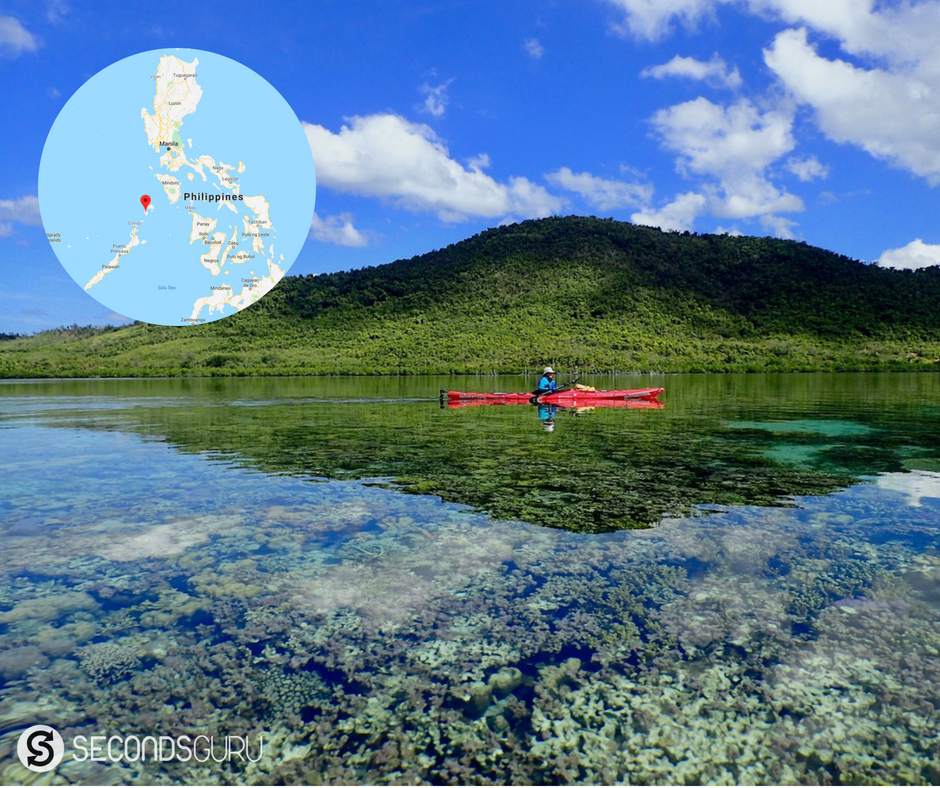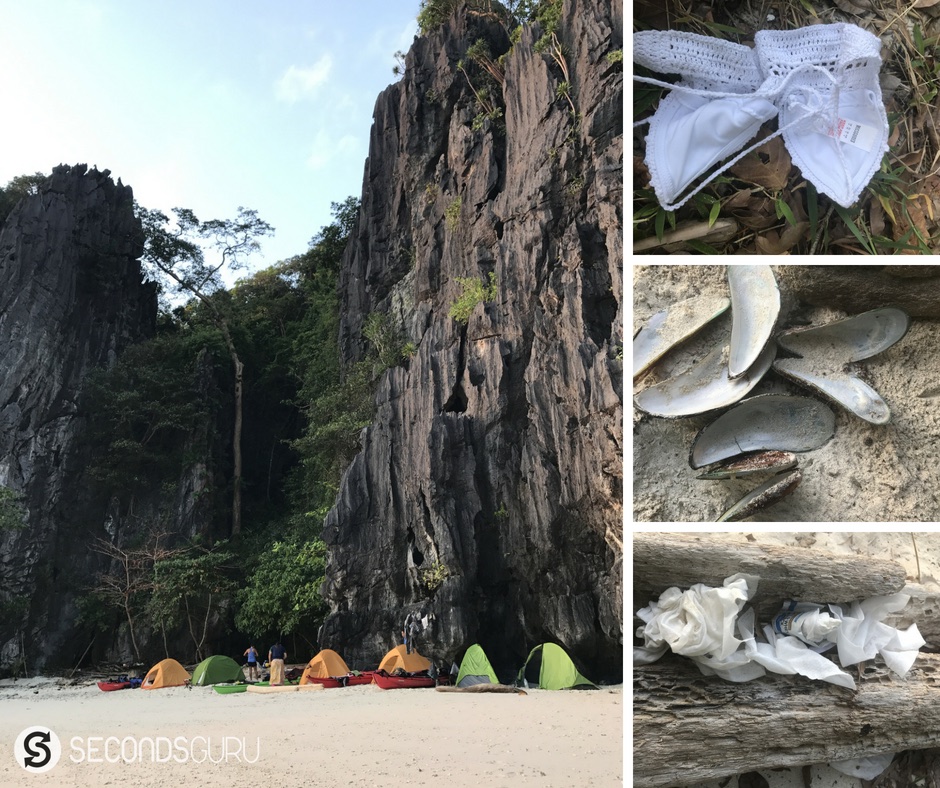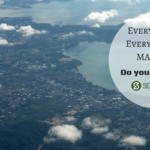Published 31 May 2018 ● Last Updated on 15 June 2018
Sim Cher Huey is an expedition sea kayaker who clocks thousands of hours on the waters in Asia. Based in Singapore, he helms the eco-adventure travel company Kayakasia. Huey and team paddled from Busuanga Island to El Nido in an 18-day kayak expedition exploring the Calamian Islands, Philippines early 2018. This is his observation of how marine trash is tainting everything that we love about nature and island life.
We had landed on an incredible beach, with soaring limestone edifices surrounding the campsite, and a backdrop of black cliffs. Crystal clear waters, impossible fine sand, and while sitting outside our tents, we had an unblocked view of Miniloc Island, which charges guests USD400 a night.

There were many beaches like the one we landed and camped for tonight. Often during past expeditions, we would be so selective about campsites grades that there might only be a couple that we would rate as a “5-star” campsites. In the Calamian Islands, we were spoilt for choice to pick which island had the nicest beach and scenery. Every beach had a postcard view.
I took my camera the next morning and started taking pictures of this deserted island that had been left to tourists. A native toilet stood in one of the beaches besides a wind-ravaged hut, a somewhat quaint picture if your purpose was simply to stay a couple of hours with on a deserted beach. There was a little cave by my tent, which by all measure was a stunning art of nature. A hidden beach inside the cave with an opening that offered unlocked views of the stars above. The water didn’t get into the cave completely, offering a dry night protected by limestone and covered in stars.
Yet we tourists have other ideas, when given the prospect and power over nature. And this is especially when there is no one else around, as if you have been given the lordship of this island until the next visitor shows up. The sense of entitlement that for that couple of hours you were on this island, it belongs to you.

As a Lord of the island, you chose the beach with the log as a picnic area, and to preserve man’s modesty in the face of nature, the smart cave as a latrine. My camera went over the wet patches where man stood or squat over; into crevices where tissue papers were folded and stuffed. Whatever little rain pools that were created by the jagged limestone rocks were used as ash trays and more dumps. I imagined the moral high ground would be ideal for a man to throw away more tissues, but I could not climb higher to see what was inside the rock crevices above my height.
Walking further along the beach, I saw smoke. A party that had used this beach to cook some mussels had forgotten to douse their fire pit, which was chosen way above the high tide line, among the vegetation. The fire left a black mark on an otherwise pristine patch of flat green grass. A charred log was still smothering, among the empty mussel shells on the beach. There were beer bottles and cups, soda bottles and more wet tissues strewn around. Even a bikini top?
I threw the black and smoky log into the sea, hearing it hissed and steamed until it sank into the clear waters.
This was one of the most littered beaches we saw on the expedition because it was visited by boatloads of day trippers. The irony was that some tour operators were willing to pay locals to clean up the beach of marine trash and flotsam so that their guests could have a cleaned beach for a picnic. While relatively cleared of trash brought in by the tides and currents, it was full of rubbish left behind by us, the tourists.

I get asked often to describe the remote islands I had paddled to. Those who did not have the chance to go such places dreamed of clear waters and pristine beach with swaying coconut trees. They were right, the remote islands were amazing. Yet, it was hard to convince them that these remote, deserted, and pretty islands were also littered with trash. I saw widening eyes whenever I described the trash over white sands. Many times, we could camp only after we clear a plastic pile of rubbish. The remotest islands had no one to clean them.
Whether it was rubbish left behind by day trippers or washed ashore by the currents, it was the careless discard of our unwanted items that has accumulated on our beaches everywhere.
With increasing incomes and buying, can we ever be the first to set foot on a deserted island before a bottle does?
– Sim Cher Huey is an expedition sea kayaker based in Singapore. If you want to explore kayaking with like-minded Southeast Asia paddlers, look up Kayakasia and its upcoming events . Kayakasia events are designed to let you explore our heritage and islands with your own power, with minimal impact.



0 Comments